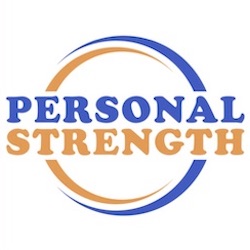As a parent, I want my children to be able to stand up for themselves, physically defend themselves if they need to. But I don’t want them to be starting fights, or using their skills to intimidate others. One important step towards this is discussing values.
What are values?
Values are ideals that we strive for, the qualities and actions that really matter to us, such as being kind, respectful, etc. Unlike goals, we can’t complete values. We continue to strive for them throughout our life. Values considered “good” by society are called virtues. Individuals develop their own hierarchy of values throughout childhood and adolescence[1]. To some extent values are genetically determined, but they are also largely influenced by family, friends, and society.
For 5-12 year old children, discussions are likely to centre on virtues, because children of this age are unlikely to be able to articulate a hierarchy of personal values. By 12-17 adolescents will be starting to figure out who they want to be and realising that what they value isn’t necessarily the same as what others value[2]. Discussions around values at this age are important for helping adolescents to be able to identify and articulate their own values and accept that they can be different from others.

Why discuss values?
An understanding of values is important, because people who behave consistently with their values tend to be happier and more fulfilled. People who take on roles that require them to behave inconsistently with their values are more prone to frustration and depression[3].
Values are also an important starting point for judging whether actions are helpful or unhelpful. Sometimes doing the wrong thing can feel good (e.g. eating sweets even though you want to be healthy), and doing the right thing can feel bad (e.g. cleaning up your room). So knowing whether actions move you towards or away from your values can be a more useful measure.
Also, research shows that values influence attitudes towards violence, and violent behaviours[4]. Specifically, people who value Universalism (equality, listening to people who are different, caring for nature), and Benevolence (caring for others, loyalty to friends) tend to be less violent, whereas people who value power (status symbols like wealth, want people to do as they say) tend to be more violent.
Values at Personal Strength
At Personal Strength, using skills responsibly is taught throughout classes, and reinforced through mat-chats. The first two mat-chats focus on values. They are not prescriptive, rather they help children and teens to explore the sort of person they want to be, and where “ninja” or self-defence skills fit into that.
References
[1] Uzefovsky, F., Döring, A. K., & Knafo‐Noam, A. (2016). Values in middle childhood: Social and genetic contributions. Social Development, 25(3), 482-502.
[2] Crocetti, E. (2018). Identity dynamics in adolescence: Processes, antecedents, and consequences. European Journal of Developmental Psychology, 15(1), 11-23.
[3]Cha, S. E., Hewlin, P. F., Roberts, L. M., Buckman, B. R., Leroy, H., Steckler, E. L., … & Cooper, D. (2019). Being your true self at work: Integrating the fragmented research on authenticity in organizations. Academy of Management Annals, 13(2), 633-671.
[4] Seddig, D., & Davidov, E. (2018). Values, attitudes toward interpersonal violence, and interpersonal violent behavior. Frontiers in psychology, 9, 604.
